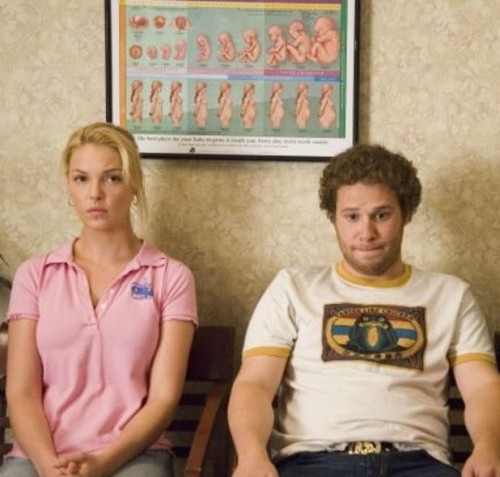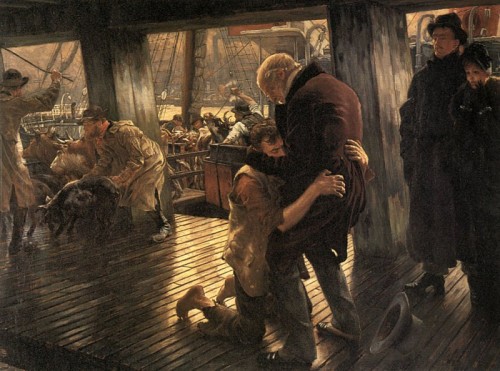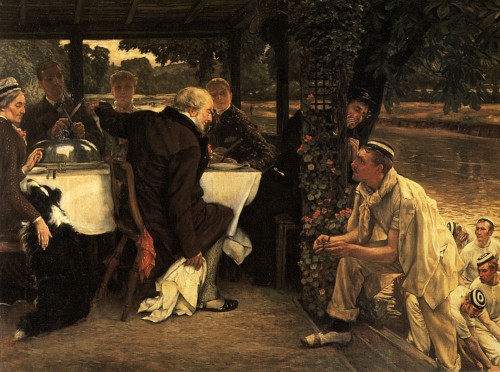
One of many things that distinguishes Tullian Tchividjian’s One Way Love from other books of its ilk is the willingness to pull back the curtain on the author’s personal life. As we all know, it is very easy to talk about grace and forgiveness in the abstract, for people to go on and on about being sinners without ever going into specifics (plug: this is often what separates the church from AA, as I tried to spell out in a radio interview with Steve Brown the other day). And sure, listing specifics can easily get voyeuristic and self-glorifying, but the last thing the world needs is another book filled with words and assertions about God’s grace but utterly detached from the concrete failures we all experience. So a big part of why I was so excited to help out with One Way Love was Tullian’s courage in talking about his own life. That is, I knew it wouldn’t be a book about theoretical grace for theoretical sinners. The guy believes this stuff too deeply not to let it all hang out there. I don’t mean that in the sense of setting up some false narrative of progress, but in terms of telling a story of continued weakness that puts its money where its mouth is, risks something personal, and does so with a vulnerability that is rooted in the present as much as the past.
One of the most powerful sections comes at the beginning of chapter four, where Tullian relates an episode of grace that occurs after his (re-)conversion. We linked to it the other day, but it’s too vivid not to warrant a post of its own. Plus, I took the opportunity to include a couple extra paragraphs at the end. Oh and just by way of context, remember that, as one of Billy Graham’s grandson’s, Tullian grew up in the absolute heart of American Evangelicalism and all that that entails–meaning, certain pressures (and scrutinies) were probably a bit amplified, for both Tullian and his father. So if you can’t relate to the predicament itself, perhaps you can relate to the feelings at work in them:
 There wasn’t one thing in particular that snapped me out of my “wild man” phase [note: Tullian was kicked out of his house at 16 – and stayed there], no big crisis or single clarifying moment that inspired me to repair the damage I had done to myself, others, and my family. As humdrum as it may sound, what led me out of that rebellious period was simply the nagging sense that there had to be more to life than what I was experiencing—there had to be more to who I was than what this world was telling me. In fact, I can’t even pinpoint the exact moment when God raised this dead rebel to life. All I know is that sometime in the fall of 1993, my culminating discontent with life made me decide to start going back to church.
There wasn’t one thing in particular that snapped me out of my “wild man” phase [note: Tullian was kicked out of his house at 16 – and stayed there], no big crisis or single clarifying moment that inspired me to repair the damage I had done to myself, others, and my family. As humdrum as it may sound, what led me out of that rebellious period was simply the nagging sense that there had to be more to life than what I was experiencing—there had to be more to who I was than what this world was telling me. In fact, I can’t even pinpoint the exact moment when God raised this dead rebel to life. All I know is that sometime in the fall of 1993, my culminating discontent with life made me decide to start going back to church.
I was twenty-one at the time. Kim, who had been my girlfriend for two years at that point, had actually started going to church with my parents a few months earlier, and before I knew it, we were both going every week. My parents were understandably overjoyed. Their prodigal had finally come home. “For this son of mine was dead and is alive again; he was lost and is found” (Luke 15:24 NIV).
Since Kim did not grow up in a Christian home like me, this was all brand-new to her. But to me, it felt like a homecoming. Even in my unruly years, I had never really ceased to believe in God. In fact, if you had given me a theological exam at the height of my rebellion, I would’ve passed with flying colors. I was just choosing to ignore it all. Maybe it was the timing, maybe it was the circumstances, but something finally clicked, and God became real to both of us in a new and exciting way.
About three months later, in January of 1994, Kim and I got engaged. Our new faith naturally led us to take a hard look at our relationship. God was changing us, and we knew our relationship needed to change as well. After being so out of control for so long, we knew we had to adjust the way we related to each other, and the physical realm was no exception. We were both coming out of a world where sex outside of marriage was completely the norm—a norm that we had embraced—and we knew the right thing to do would be to pull back until we were married. Easier said than done! Despite our best intentions and most earnest efforts, we slipped up three or four times during our engagement.
I’ll never forget when Kim came over to my apartment one night after work and told me she was pregnant. I was devastated. Not just because the news was a shock or because I hadn’t expected to be a parent at such a young age. I was devastated because everyone who had celebrated my return “to the fold” would think the turnaround was a false alarm. I had caused my family so much pain and heartbreak with my self-absorbed shenanigans, and they had been so relieved and excited that their reckless son had finally come back; it had been the answer to years and years of prayer. I had put my parents through more than any son ever should and had asked for their forgiveness on numerous occasions. To drop this bomb might crush them all over again, and I just couldn’t bear it. I was scared, ashamed, and angry at myself for failing yet again.
Somehow we summoned the courage to go over to my mom and dad’s house the next day—Mother’s Day, believe it or not. After some awkward small talk, I asked my father if we could speak to him alone. We walked out to the driveway. Dad was standing in front of me, and Kim was by my side, shoulder to shoulder.
“Dad we have something to tell you.” I burst into tears. “Kim’s pregnant.”
Kim started bawling too. Next thing I knew, he was embracing both of us, me with one arm, her with the other, while we wept. He held us for ten minutes. He could see how overwhelmed we were. I can still hear his voice telling us, “It’s okay. We love you. It’s going to be okay. This child is going to be a blessing.”
Kim and I had been so excited about getting married, and now we were going to be parents as well. In addition to the embarrassment and shame involved, we were grieving the happy expectation that we’d have a few years, just the two of us, before starting a family. We were in a state of shock. Yet my father did not condemn or lecture us, even though he had every right to do so. Instead, he comforted us. More than that, he gave us good news. He told us that while the circumstances clearly weren’t ideal, this was going to turn out just fine. This baby was going to be a blessing to both of us and a gift to the whole family. Every time Kim and I look at our oldest son (now eighteen), we realize afresh that my dad was absolutely right that day.
The whole situation was wrapped in grace: I deserved his reproach and disapproval—premarital sex resulting in unexpected pregnancy is no father’s dream for his child—yet his gracious response assured me that he not only wasn’t crushed, his love for me was stronger than ever. When I told him (through many tears) how sorry I was for once again letting him down, he simply hushed me by hugging me tighter and saying over and over again, “It’s okay. I love you. It’s okay. I love you.” At that moment in the driveway, when I rightly deserved my dad’s disappointment, he assured me of his delight.
Even now it is hard to put into words the emotional relief I felt. Lifesaving is not too strong a word. I thank God with every fiber of my being that He put me in a family where I was surrounded by such one-way love.
The love my father showed me that day is not a one-to-one approximation of God’s one-way love for you and me—nothing is! In fact, before we go any further, I should clarify: the Gospel is the announcement of Jesus Christ given for and to sinners. It refers to the one true act of Grace, or one-way love, to which all others point. Like small-l law, small g-grace refers to the infinite reflections or echoes or outworkings of big-G Grace we see and experience in relationships, art, etc.
My father was not preaching the Gospel to me that day–he didn’t sit me down to tell me that, on account of Christ, my sins were forgiven. Instead, he showed me grace. That is, he treated me in a way that was analogous to how God treats you and me. He was not God, of course, but like many fathers, he did play a similar role in my life: someone in authority who showed me love in the midst of deserved judgment. As it is with big-L and little-l law, if occasionally we use big-G and little-g grace interchangeably, it is not because they are they same thing, but because we often experience them the same way… I was at my least lovable in that instance–a repeat offender whose offense was going to have very real consequences–yet somehow my father treated me as though I’d never been loved more.

COMMENTS
6 responses to “Dad, We Have Something To Tell You: Premarital Predicaments and One Way Love”
Leave a Reply















This is such a special story. I so appreciate Tullian’s (courageous) transparency.
Awesome. Humbling to read as a parent.
Great stuff! Perhaps one day, my pride will shrink enough for me to be so transparent but I doubt it.
The closer we are to Christ the least we care about other’s thinking of ourself and the more we care about bringing glory to the One who loves us.
Its interesting to read this now that some of the Tullian’s scandals are out in the open. In hindsight, he was clearly not being transparent. Tullian carefully crafted a series of books with the ongoing message that all sin, no matter how bad, needs to be instantly forgiven. In this story, of the prodigal son, Tullian purports that basically the older son is the bad son, since he obeys the law and doesn’t act out, and the the son who goes out gambling, fornicating and living as a heathen is the good one. Tullian was laying out the future defense for his disqualifying behavior.
It makes you wonder if he ever turned his back on his reprobate lifestyle or if he spent his entire pastoral career preparing for the day he would be caught with so many women and lies that people could no longer close their eyes to his immoral ongoing behavior. He should have just gone to work for one of Billy Graham’s organizations. They take in almost 3/4 of billion dollars, tax free, a year. Then he could work for the good of the kingdom without risking public exposure and letting a flock down. Of course, then he wouldn’t have the same level of access to vulnerable women. People need to wake up.